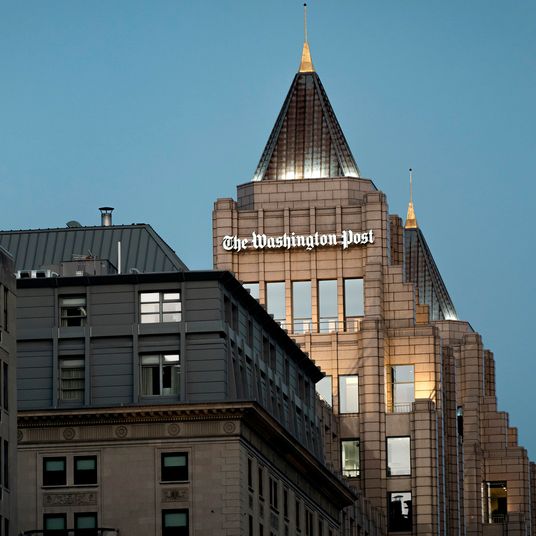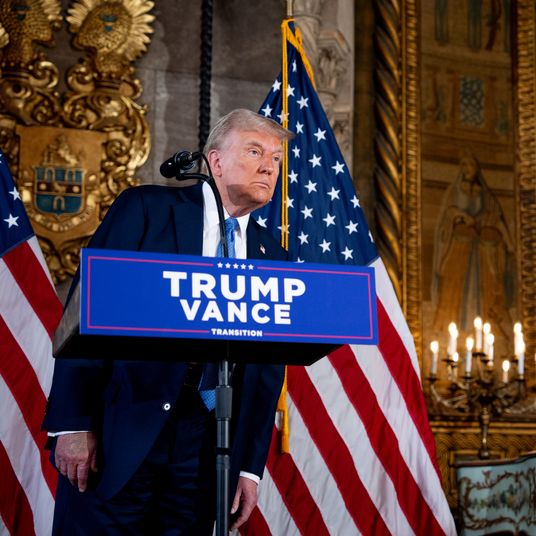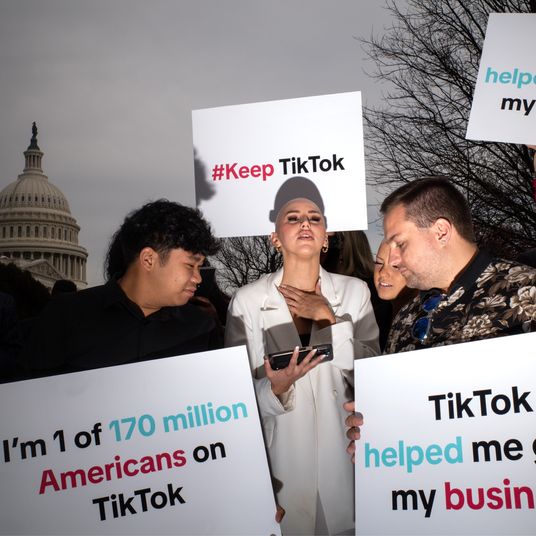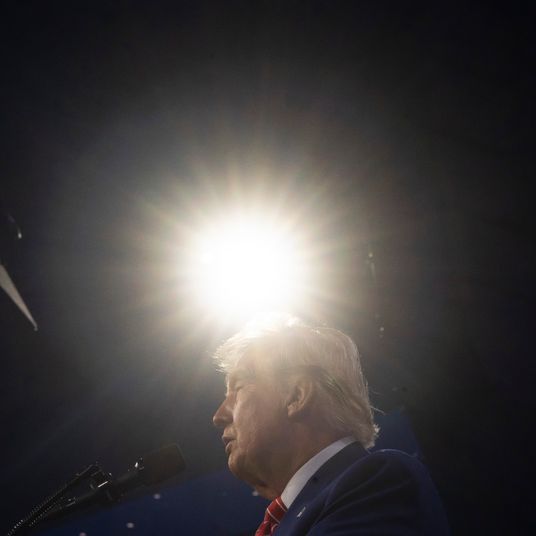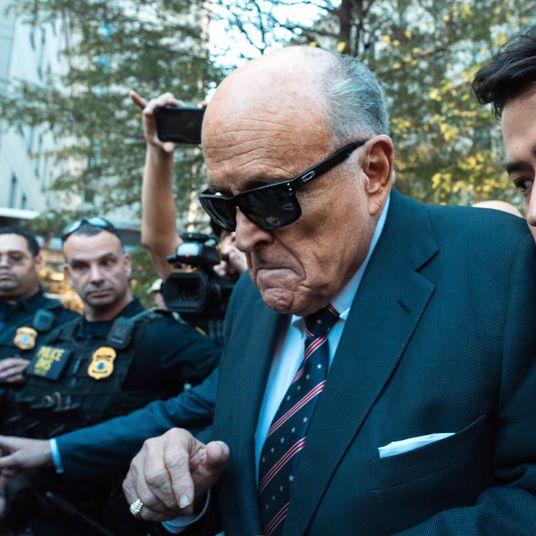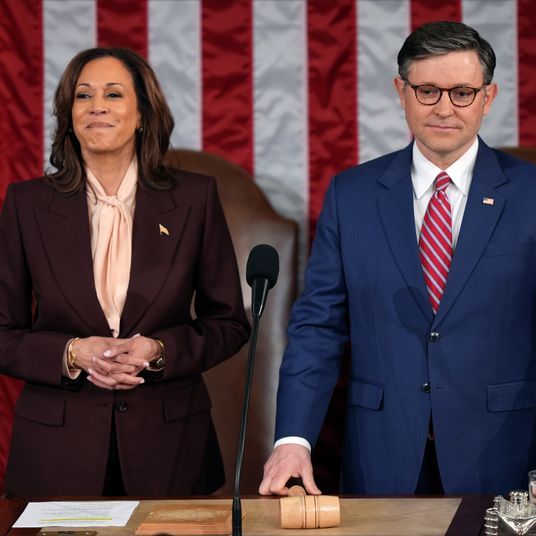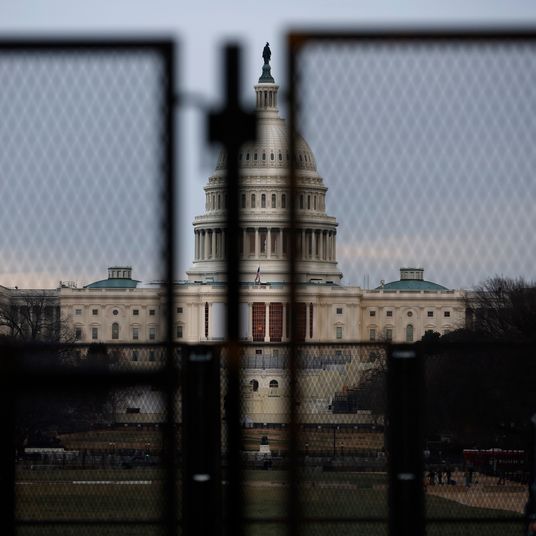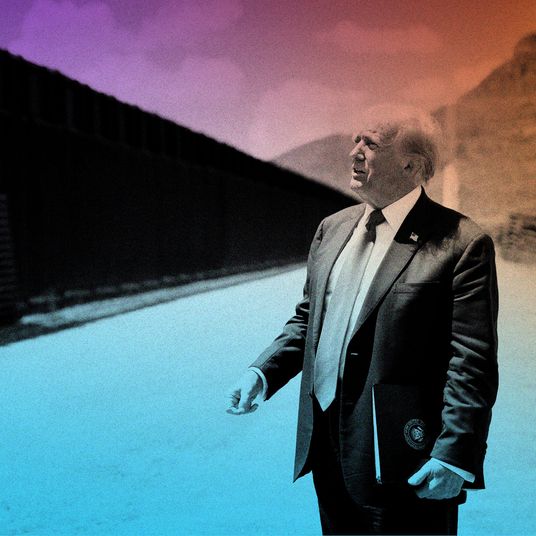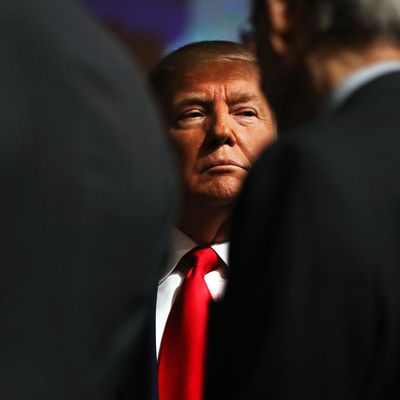
The saga of President Trump’s reprisals against Amazon has lurked on the margin of the news, largely overshadowed by the Ukraine scandal. Late Thursday night, Amazon revealed it had filed a protest in federal court of a Pentagon decision to deny it a $10 billion cloud-computing contract, the most recent piecemeal iteration of a saga that attracted precious little media attention even before the Ukraine scandal obscured it.
Yet the story here is almost certainly a massive scandal, probably more significant than the Ukraine scandal that spurred impeachment proceedings. Trump improperly used government policy to punish the owner of an independent newspaper as retribution for critical coverage. It resembles the Ukraine scandal because it is a flagrant abuse of power, and has been hiding in plain sight for months (as the Ukraine scandal did, until a whistle-blower report leaked in September). The scale of the abuse, though, is far more serious, because it is a concrete manifestation of Trump’s authoritarian ambitions.
Coverage of this story has implicitly extended Trump the benefit of the doubt by treating his hatred of Amazon’s owner and the Defense Department’s decision to spurn Amazon as presumably disconnected. There is not yet any smoking gun proof that Trump interfered improperly. It is possible, however unlikely, that the Pentagon acted completely at arm’s length from any political consideration, and the result just happened to comport with Trump’s desire to punish Jeff Bezos.
But even the appearance of impropriety ought to amount to a far larger scandal than it has been treated so far. The external evidence alone is incredibly damning, sufficient on its own to constitute an impeachable offense.
Starting in 2015, Trump raged at critical coverage in the Washington Post, and immediately connected it to the economic interests of its owner.
By 2016 Trump had gone from implicitly threatening to harm Amazon’s interests to threatening this explicitly. “If I become president, oh do they have problems. They’re going to have such problems,” he warned, presciently, in February 2016. A few months later, Sean Hannity asked about critical reporting in the Post. Trump’s response was telling. He weaved back and forth between denouncing the Post and denouncing Amazon, treating the two as interchangeable:
It’s interesting that you say that, because every hour we’re getting calls from reporters from the Washington Post asking ridiculous questions. And I will tell you. This is owned as a toy by Jeff Bezos, who controls Amazon. Amazon is getting away with murder, tax-wise. He’s using the Washington Post for power. So that the politicians in Washington don’t tax Amazon like they should be taxed. He’s getting absolutely away — he’s worried about me, and I think he said that to somebody … it was in some article, where he thinks I would go after him for antitrust. Because he’s got a huge antitrust problem because he’s controlling so much. Amazon is controlling so much of what they’re doing.
And what they’ve done is he bought this paper for practically nothing. And he’s using that as a tool for political power against me and against other people. And I’ll tell you what: We can’t let him get away with it. So he’s got about 20, 25 — I just heard they’re taking these really bad stories — I mean, they, you know, wrong, I wouldn’t even say bad. They’re wrong. And in many cases they have no proper information.
And they’re putting them together, they’re slopping them together. And they’re gonna do a book. And the book is gonna be all false stuff because the stories are so wrong. And the reporters — I mean, one after another — so what they’re doing is he’s using that as a political instrument to try and stop antitrust, which he thinks I believe he’s antitrust, in other words, what he’s got is a monopoly. And he wants to make sure I don’t get in. So, it’s one of those things.
But I’ll tell you what. I’ll tell you what. What he’s doing’s wrong. And the people are being — the whole system is rigged. You see a case like that. The whole system is rigged. Whether it’s Hillary or whether it’s Bezos.
What’s revealing is the ease and frequency with which Trump weaves back and forth. If you are charting his rant, it goes Washington Post-Amazon-Washington Post-Amazon-Washington Post-Amazon-Washington Post-Amazon. In Trump’s mind, they are the same.
As president, Trump has continued denouncing the Post and its owner, and publicly floating policies to exact his revenge. Sometimes he has claimed Amazon is getting away with avoiding “internet taxes”:
Other times he has framed the issue as generous postal rates:
The former complaint is totally false, the latter only exaggerated. But neither is made in anything resembling good faith. Both clearly showed Trump casting about for a policy rationale to justify the motive he had already revealed.
In March of 2018, five sources who have discussed the issue with Trump described him as “obsessed with Amazon,” according to a report by Jonathan Swan. Another report the next month by Gabriel Sherman provided more detail about Trump’s thinking. Four sources close to the White House told Sherman not only that Trump is obsessed with punishing Bezos and Amazon (“He gets obsessed with something, and now he’s obsessed with Bezos,” one source said. “Trump is like, how can I fuck with him?”), but floated for the first time using the Pentagon as the vehicle to do this. “Advisers are also encouraging Trump to cancel Amazon’s pending multibillion contract with the Pentagon to provide cloud-computing services,” Sherman’s sources reported.
Guy Snodgrass, a former speechwriter to Defense Secretary James Matthis, writes in his new book that in the summer of 2018, Trump ordered Mattis to “screw Amazon” by denying it the contract. Snodgrass records that Mattis pushed back on this request. And it is common for Trump or his advisers to consider wild, dangerous, or criminal schemes they ultimately don’t follow through on. Yet the fact is that the Pentagon did deny Amazon the cloud-computing contract after what the New York Times called a “highly unusual, last-minute intervention by President Trump.” And that denial came as a shock to analysts, who considered Amazon the prohibitive favorite to win the bid. The firm is the country’s largest cloud provider and had already built a cloud for the CIA.
On their face, the publicly reported facts of this case lay out a gigantic scandal. The president intervened to deny a federal contract to a firm he publicly and privately vowed to punish because its owner also owns a newspaper whose coverage angered him. The most generous possible interpretation of these facts is that Trump somehow came to believe some merit-based reason to deny Amazon the contract. But this scenario would presuppose that Trump is able to ignore his intense personal animus toward a principal figure in the dispute and form a judgment abstracted from his political interests — the kind of thinking even Trump’s defenders would largely concede he is almost incapable of.
And even this virtually-unimaginable scenario would still amount to a massive abuse of power. After all, Trump has vowed retribution against Bezos over the Post’s coverage, and then delivered a punishing blow to his firm. His actions made the threat credible. Everybody will at least suspect Trump engineered the Pentagon decision to hurt Bezos. Any owner of an independent media who publishes journalism that runs against Trump’s interests will have to weigh his ability to exact a financial price. Media owners are not universally brave and willing to absorb massive financial hits in order to preserve the independence of their journalism.
Amazon’s suit may or may not expose the process that led the Pentagon to its decision. Trump is reasonably good at hiding evidence, banishing note-takers from his presence, using code words and funneling his shadiest orders through intermediaries.
Whatever the outcome, though, Trump has already taken his largest step toward the kind of democratic backsliding engineered by Orban in Hungary and Erdogan in Turkey (two strongmen he admires). He has turned the power of the state into a weapon of intimidation against the free press. Clever conservatives have defended Trump’s abuses for years by insisting he is too incompetent to be an effective authoritarian. They have used a version of that defense in the Ukraine scandal — he attempted to use American diplomatic might for his political gain, but failed. Here, though, Trump set out to abuse his powers of office to intimidate the media, and succeeded. What are we going to do about it?



















